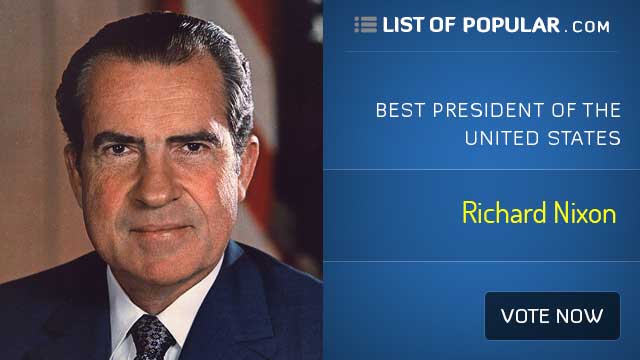The Best US President - Richard Nixon
Richard Nixon: A Political Journey
Richard Milhous Nixon, the 37th President of the United States, was born on January 9, 1913, in Yorba Linda, California. His political journey was marked by triumphs and controversies, shaping both the man and the nation he served. Nixon's legacy is a complex tapestry, woven with achievements and overshadowed by the Watergate scandal.
Early Years and Political Ascent
Nixon's early years were humble, growing up in a small Quaker community. His political aspirations emerged during his time at Whittier College and later at Duke University Law School. He entered politics after serving in the Navy during World War II, winning a seat in the House of Representatives in 1946.
The Vice Presidency and "Checkers" Speech
Appointed as Vice President under Dwight D. Eisenhower in 1952, Nixon faced a pivotal moment in 1952. Accusations of a secret fund threatened his political career. In his famous "Checkers" speech, Nixon defended himself, referencing the gift of a dog named Checkers. The emotional address endeared him to the public, securing his place on the ticket.
1960 Presidential Election and Comeback
Nixon experienced a setback in the 1960 Presidential election, losing to John F. Kennedy in a close and contested race. Undeterred, he made a political comeback, winning the California governorship in 1962. Despite his earlier defeats, Nixon remained a formidable political figure.
The White House Years
Winning the 1968 Presidential election, Nixon faced a nation divided by the Vietnam War and social unrest. His administration implemented policies like the Nixon Doctrine and détente, aiming to ease Cold War tensions. Nixon also initiated the Environmental Protection Agency (EPA) and supported the desegregation of schools.
Watergate Scandal and Resignation
Nixon's presidency took a dark turn with the Watergate scandal. The break-in at the Democratic National Committee headquarters led to investigations revealing a web of political espionage and cover-ups. Facing impeachment, Nixon became the first U.S. President to resign on August 8, 1974, handing the reins to Vice President Gerald Ford.
Legacy and Later Years
Post-resignation, Nixon largely retreated from public life. In the following decades, he sought to rehabilitate his image through writing, international travels, and interviews. His memoirs, published in the late 1970s, provided insights into his presidency and the Watergate affair. Despite his accomplishments, Nixon's legacy remains tarnished by the events surrounding his resignation.
Conclusion
Richard Nixon's political journey was one of resilience and achievement, culminating in the highest office in the land. From his early days in a small California town to the pinnacle of power in the White House, Nixon faced both triumphs and tribulations. His impact on U.S. foreign policy, environmental initiatives, and domestic affairs is indelible, yet the shadow of Watergate looms large over his legacy. The complexity of Nixon's legacy serves as a reminder that political narratives are often nuanced, and the actions of leaders can shape both their time and the generations that follow.

